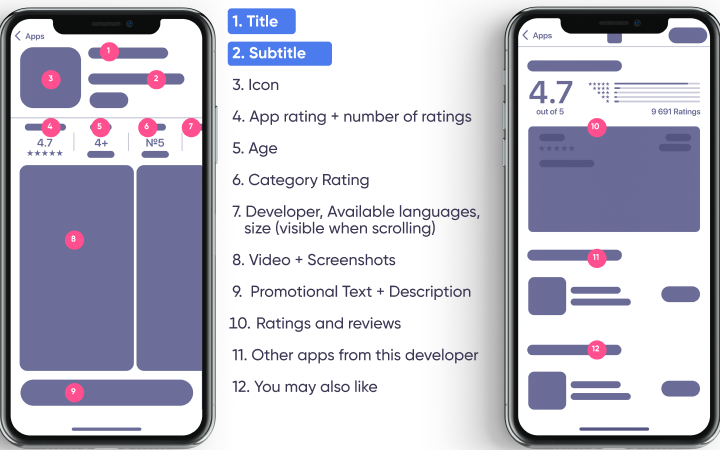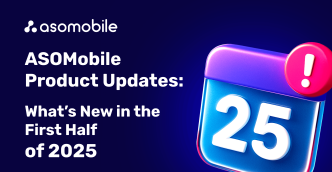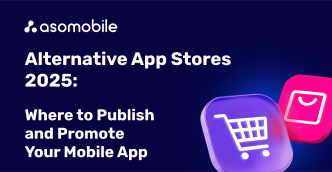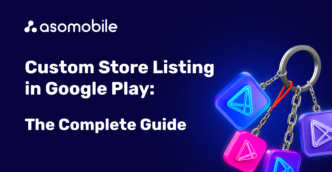ASO for Indie Developers. Generation of metadata. Part 2
We continue our cycle of publications dedicated to ASO optimization for Indie developers. In the first part, we figured out how to carefully assemble the semantic core for our game; now, we figure out what to do with it and how to use it.
Generation of metadata
Generating metadata is less hardworking than collecting a semantic core, but it is no less important. Correctly using the collected search queries will allow us to get the necessary keyword visibility. We will dedicate our time and attention to this part of ASO for Indie developers special.
The rules for the App Store are quite simple - we have three main metadata fields at our disposal:
- Title
- Subtitle
- Keywords

Title
Metadata field where we will use the most relevant keywords. It’s great when working with keywords occurs at the stage of planning and developing the game. We can include the search queries we need in our title. But even if the game already has a name and there are remaining symbols, we fill it with keys to the limit.
The limit is 30 characters.
Remember, we color-coded our queries based on traffic, so we try to use the words with the highest traffic in this field.
Subtitle
Let's move on to the next field - by title. This should logically continue our game's name, allowing the user to discover the essence. In addition, this field serves as a source for indexing. We will use relevant key queries from our semantic core. Please note - do not repeat those that are already in the title. That's right - if the words zombie war are already in our title, forget about them. We formulate what our game is about based on the semantic core and the essence of the gameplay.
The limit is 30 characters.
Keywords
When filling this field in, we will be extremely careful because, thanks to it, we can get the broadest possible indexing of our game. The rules for filling in the keyword field are simple but can be a little confusing - you need to write all the necessary keywords in separate words, separated by commas, without spaces. In addition, this field will combine the specified keys with the title, subtitle, and each other. There is no need to repeat the keys either. Everything will become much clearer thanks to the infographic and example of metadata.
The limit is 100 characters.

Example of metadata and how to fill in the keywords field:
Title - Zero City: Shelter and Zombie (29 characters out of 30 available)
Subtitle - Survival, post-apocalypse war (29 characters out of 30 available)
Keywords - game,multiplayer,survive,cod,defense,shooting,shooter,hunter,rpg,walking,base,tycoon,online,kill (97 characters out of 100 available)
The search queries we need will be generated from the current metadata, such as:
- survival games
- zombie games
- multiplayer survival games
And many others. Please note that the words are written in the singular (the plural is formed automatically).
But there is another opportunity to expand the indexing of our game - additional locales.
App Store Localization

Every country, except perhaps the UK, has several additional languages. This was created to localize the pages of games and apps for users in the selected geo. But if our game only has English localization, we can safely use additional locales. It works like this:
As the table shows, many additional locales exist in the USA. And even if we plan to translate the product page (and the product itself) into other languages, there will still be a lot of room for our keywords.
So our metadata version for 1 locale - USA is already described above.
Next, we select the next language, for example, Spanish (Mexico), and use the new fields to fill. You can even experiment with Title and Subtitle, but for now, we will only use the keywords field:
Metadata for locale 2:
Title - Zero City: Shelter and Zombie (29 characters out of 30 available)
Subtitle - Survival, post-apocalypse war (29 characters out of 30 available)
Keywords - versus,offline,tower,defense,project,2d,gun,crush,escape,shoot,village,town,fighting,action,game
The main rules for working with keywords in the App Store metadata:
- Do not repeat words in metadata fields or within the field itself.
- Remember the way additional locales work. Keywords in the keywords field in different locales do not interact with each other. Only title+subtitle+keywords - in this combination.
- Try to use combinations of keywords that will cover the maximum of our semantic core (traffic priority).
Features of metadata generation for Google Play
We come to another metadata field - Game Description. But it’s worth mentioning immediately that ASO optimization skills will be helpful to us here only for Google Play. App stores are indexed using different algorithms, and if we have a keyword field for the App Store, then we work with a description on Google Play. In the App Store, we can use any text in which we would describe to users all the advantages and features of our game. Without paying attention to keywords, semantics, and rules. There is a character limit of only 4000 characters.
But with Google Play, everything is not so simple - the game description must be optimized and filled with keywords, but in no case is it overcrowded.
To evaluate these parameters, let's turn to Text Analyzer.
Text Analyzer

We added the Android version of our game to the analytics - the basis for optimization and analyzed the description.
Using Text Analyzer, we can easily see the number of characters (4000 maximum), the number of repetitions of keywords, and, most importantly, spam. Google Play doesn't like it when developers overuse keywords, emphasizing that search queries should be organically included in the text. The standard approach is to use the keyword once every 250 characters. It is also worth using different forms of tech search queries that we want to include in the text (as they are written in the core - mandatory).
Another function of Text Analyzer is assistance in selecting semantics. When we collected keywords, we didn’t look here because it’s rare that descriptions for the App Store contain the keywords we need (although this is not excluded). But app descriptions on Google Play are a valuable source of key queries. We can analyze not only the description of the current application or game but also competitors.

And supplement our semantics with relevant keywords. We take this into account when optimizing games for Google Play.
The result of text ASO optimization for Indie Developers
Ready App Store metadata:
- Title: 30-character limit.
- Subtitle: 30-character limit.
- Keywords: 100-character limit (each locale).
- Description: 4000-character limit.
- You can also add Promotional Text here. This field is also not indexed and is not required to be filled out, but if there is a desire, let’s not leave it empty. How and what to write there can be read here.
Ready metadata for Google Play:
- Name: 30-character limit.
- Short Description: 80-character limit.
- Description: 4000-character limit.
It is worth mentioning that the rules for filling out metadata differ on this site. Words may be repeated between metadata fields. The short description, subject to the 80-character limit, can have more calls to action and appeal to users but should also be keyword-rich. Well, we already know everything about the description.
In the next episode, we'll look at visual optimization, analyze the effectiveness of our ASO, and work with reviews and ratings. Stay in touch.
 Українська
Українська  Русский
Русский  Español
Español 






